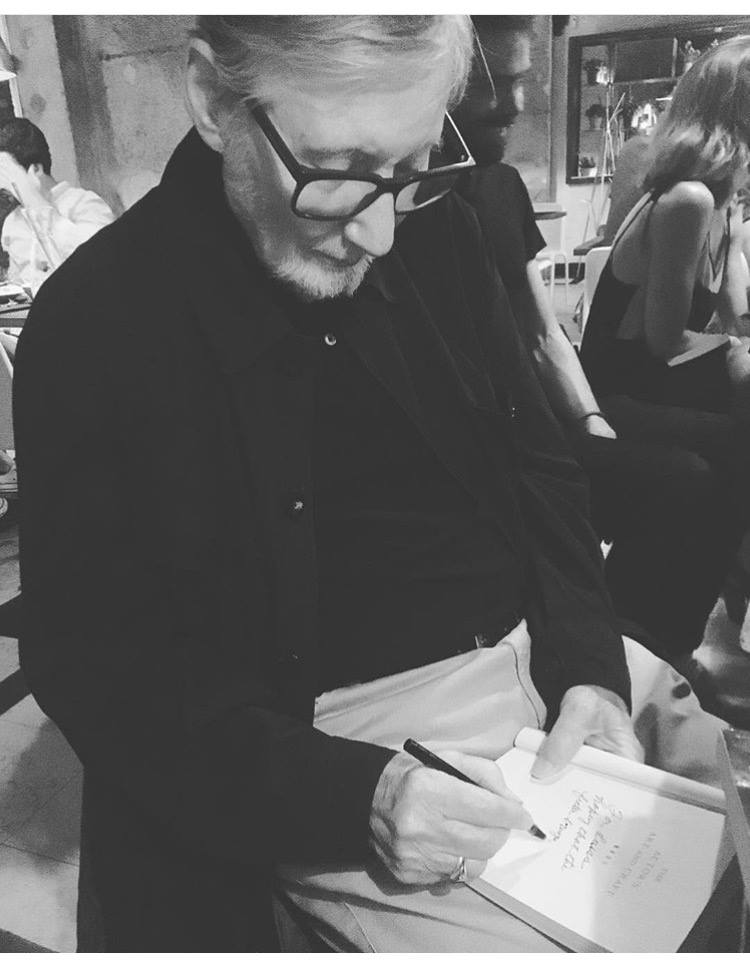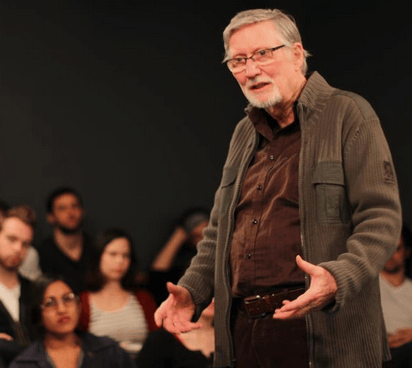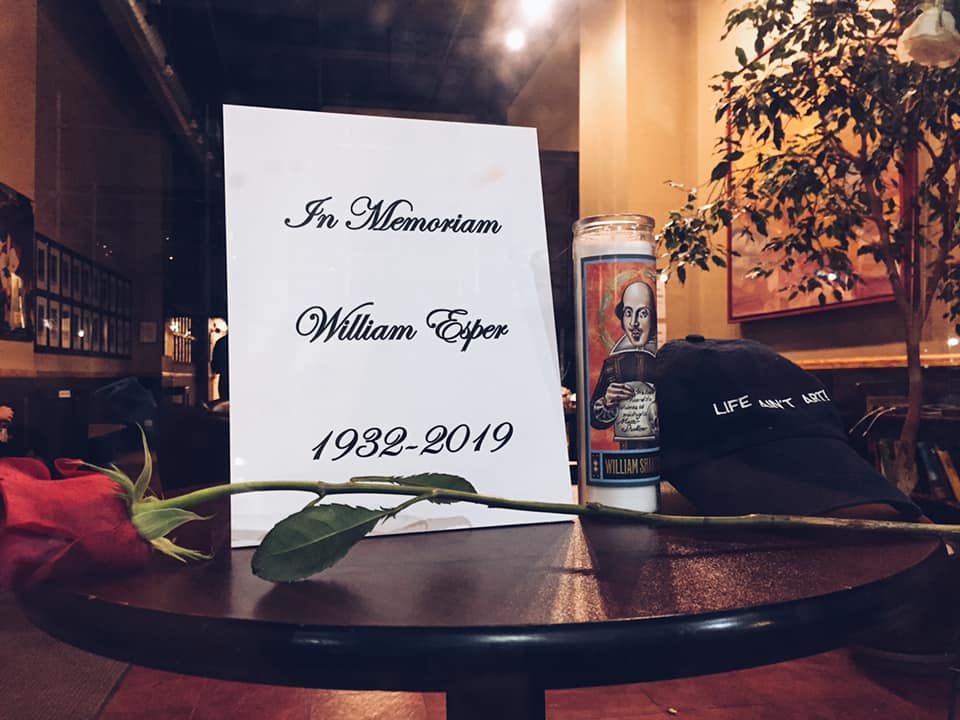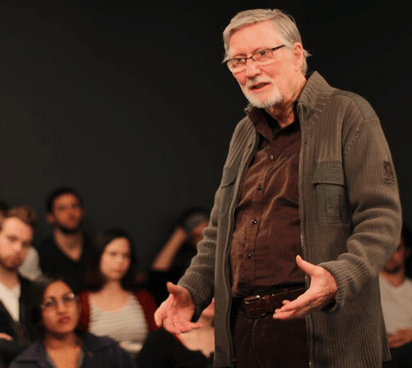
William Esper: Life and Loss
Contributed with Love and Gratitude by Terry Knickerbocker
Earlier this month, the art and craft of acting lost a giant, an icon and a true master. William Esper was a tireless and obsessive champion of excellence in actor training. He put his indelible mark on the instruments of so many of our very best actors, and the craft is all the better because of his innumerable contributions.
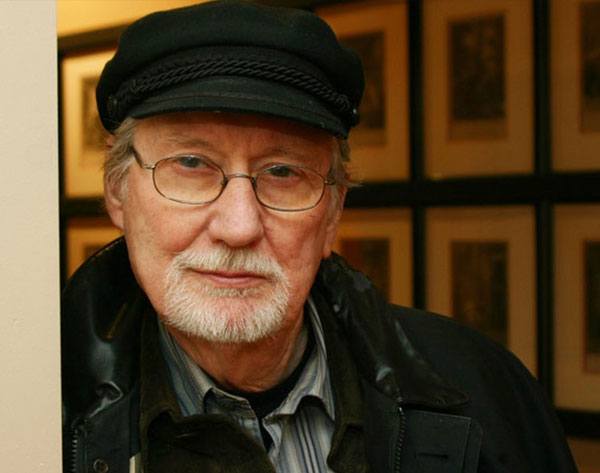
When I came to study with Bill Epser over 30 years ago, I had just finished my acting training at NYU. I had a degree. I had great training and wonderful experiences working with immensely talented peers. But after I graduated, I felt stuck — at times I didn’t know what the hell I was doing. Around that time, I had seen an actor who trained with Bill do some mind-blowingly incredible work; his performances were consistent and equally amazing every night. I wanted to be able to do that. If I hadn’t been lucky enough to see someone who studied with Bill Esper and have his name whispered to me I don’t think I would’ve found him. Teaching pioneers like Sanford Meisner, Stella Adler, Lee Strasberg, and Uta Hagen were still alive and teaching. At that time, Bill wasn’t yet the legend he ultimately became. However, he was a master in his own right, even back then. Watching Bill teach was an eye opening experience. In a way, this technique is simultaneously the easiest and hardest to teach. When Bill generously took me on as a teacher in training, I was fortunate enough to watch him teach the same material to several classes of students. And I would see the same scenes done in wildly different ways. How could this be? I came to realize that Bill was a wizard when it came to honoring the material and honoring the unique personalities of the actors doing it. Bill trained under Meisner himself, yet when he came to the work from a teacher’s standpoint, he was able to beautifully filter it through his own sensibilities and personality.
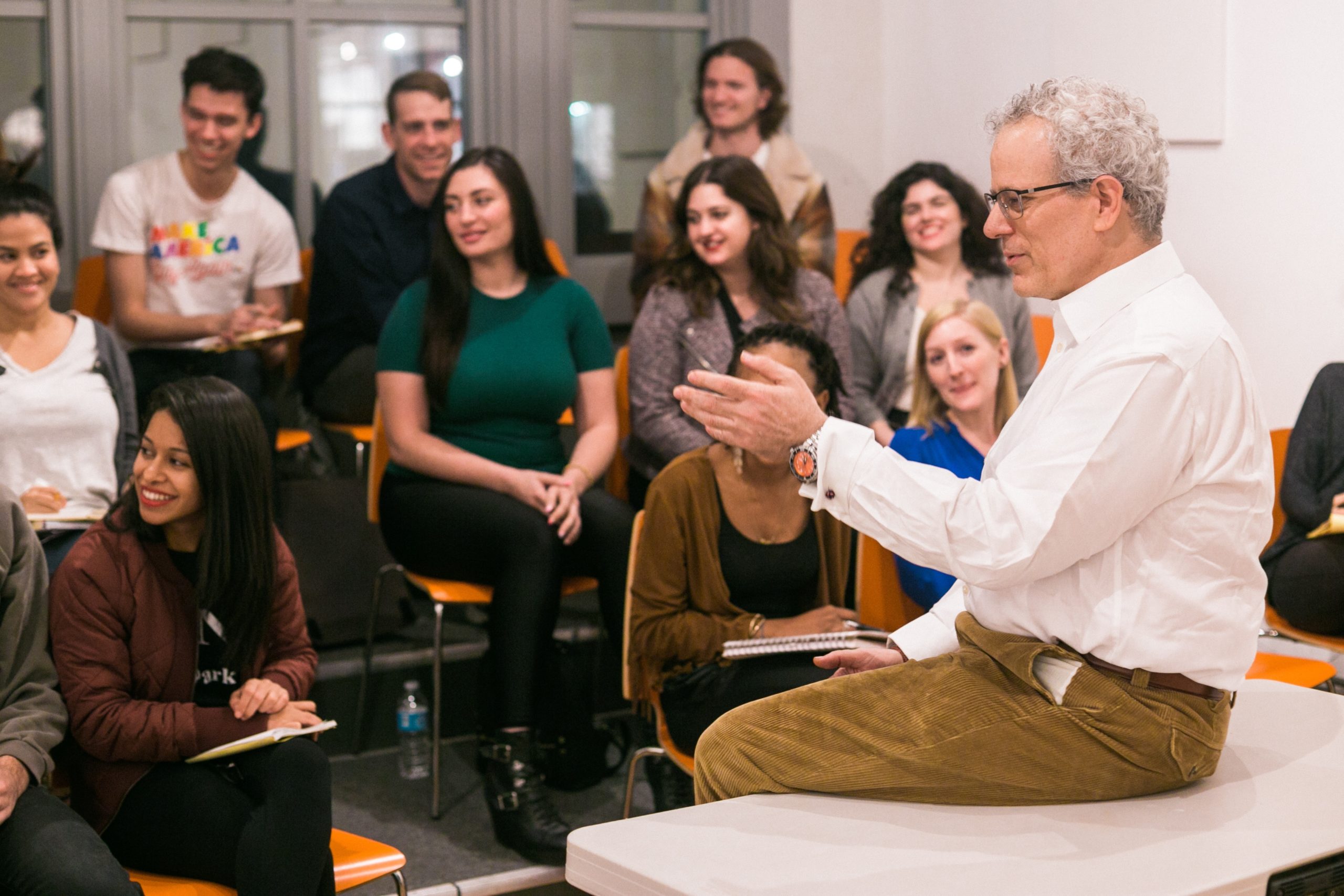
Of course, I wound up stealing some of his Bill-isms. Bill was a brilliant storyteller with so many great stories. He had great timing. He had an incredible sense of humor, and I continue to tell several of the jokes he told. I try my best to capture the way he used humor and playfulness in the classroom to make clear some nugget of acting wisdom. Some of my favorite memories from my training days with Bill were the moments when he would get up in class and do some work. Mind you, he wasn’t showing off, he was just modeling the work. It was an amazing teaching moment. We would see, “Okay that’s how you do it”. These moments were truly thrilling. Bill was just so full of love: for the work, for actors, for teaching, for people. He was a deep and complex person, so the work he touched had depth. He could be so gentle around sensitive life in the room. But he could be stern, too. He was so childlike. He had an interest in humanity.
Because of Bill’s ability to be “in the moment”, he was an extremely flexible teacher. He could read what the room, and the individual actors, needed at any given time.
One of my strongest memories from my first year of training really illustrates this:
There was a super hilarious, wacky, wild guy in my class — a favorite student of Bill’s. This student did an activity in first year where he was doctoring a cigarette. You could tell he was taking the tobacco out and he was putting other stuff in. And as I remember it, there was not a lot of actual behavior or meaningful emotional life being generated. (Which is one of the goals of the activity.) But he was busy, and after the exercise, when Bill asked him what he was doing, he replied “Well, I’m doctoring this cigarette“.
“What do you mean?” “I’m putting something in it so that when the person smokes it will make their lungs spontaneously combust, burst into flames and kill them instantly.” “Oh my goodness,” Bill said. “So you’re gonna kill somebody?” “Yeah, I’m gonna kill somebody.” “Well who are you gonna kill?” “Calvin Klein.”
The whole class was stunned and then everyone started cracking up.
“Calvin Klein? Calvin Klein the clothing designer?” “Yes, Calvin Klein the clothing designer.” “Well, why would you wanna kill Calvin Klein?” “I’m gonna tell you. My sister’s a model, and she’s been in his runway shows. And for whatever reason this year, he’s not putting her where she usually is in his shows. He’s putting her in the back row. And it’s really bad for her career. He’s really screwing her up. Fucking her over. So, he’s going down.”
Well, you could hear a pin drop at that point. And Bill launched into at least an hour-long lecture. He was fuming. He was outraged by what he called the lack of humanity in that reason. That someone could feel that they could go around killing people because their sister didn’t get the right job. And how dare we put that on stage. And where’s our sense of responsibility and our sense of morality and our sense of humanity. I mean, it went on for a long time. And he was talking to the actor but he was talking to all of us. He said something along the lines of:
“Listen, you people, this is a sacred responsibility, what we’re doing. Audiences come to see something about what it is to be human. And if we’re gonna do something like that, it would be a character. That would be a sociopathic character. Someone with no compunction in terms of who or what they hurt. Someone who would put firecrackers in frogs. Or put cats in microwaves just to see what happens. And that’s a disturbed person. And you’re not a disturbed person, but you’re putting very disturbing work up there.”
He was so offended by that work. And even more passionate about our responsibilities. That speech has stayed with me forever. That was the lesson of the day. No more work got done. This happened 36 years ago, and I remember it like it was yesterday – because he was so alive.
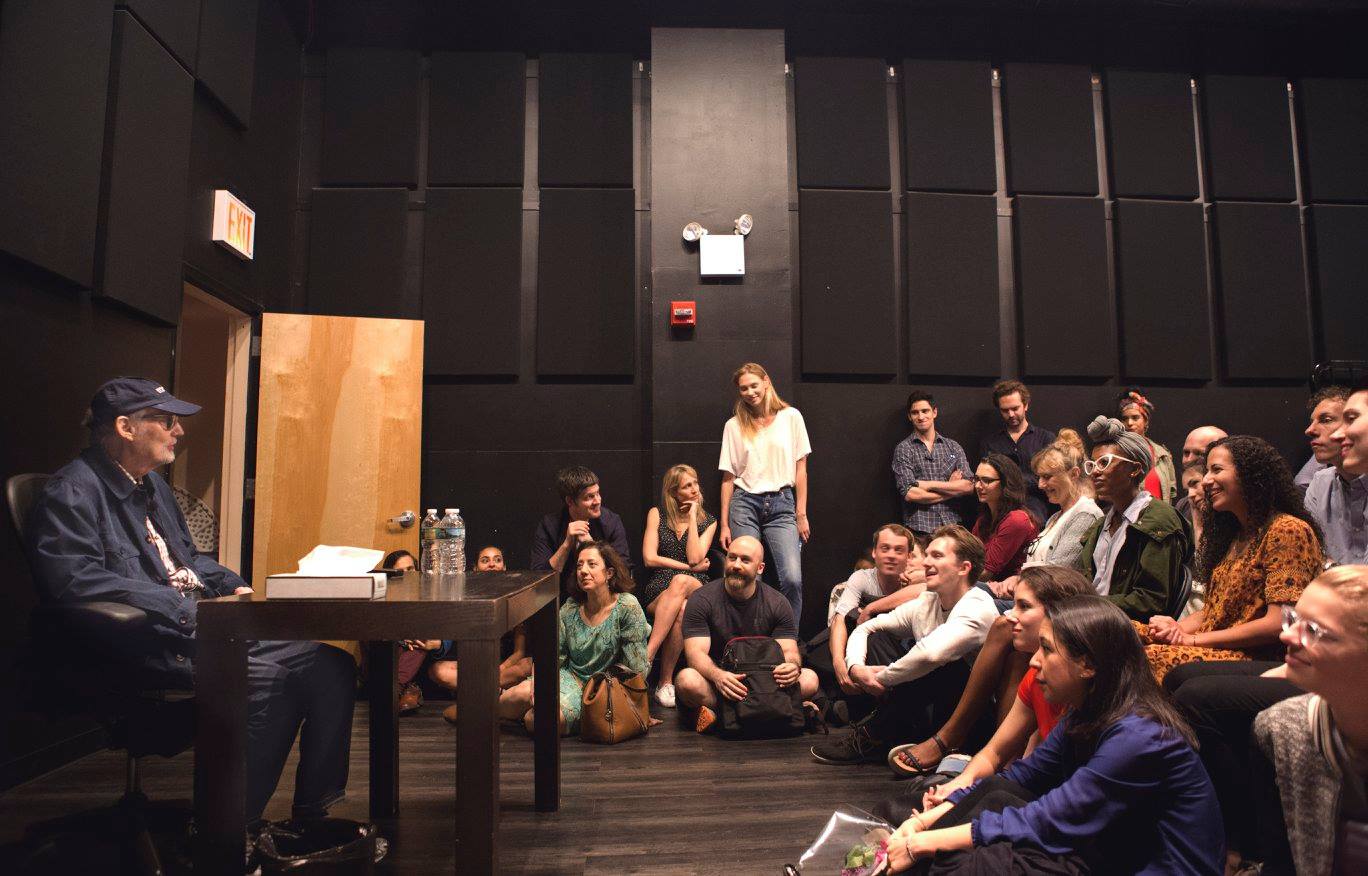
But he didn’t kill this student off. He didn’t kick him out of his class. That was what was so amazing about Bill: he was a father figure to so many of us. He would invest in us.
His mission was to teach this craft but to also help his students give birth to that which we needed to give birth to.
All of this is to say: Little did I know when I met him in 1983 that this animated, deep, playful and sly genius would have such a profound impact on me for the 32 years we worked together. He really was the patriarch of his studio. It’s a profound model for how I aspire to be at my own studio for my students, for my staff, for my faculty — I aim to really nurture, care and support them in many of the same ways I was fortunate enough to see Bill embody every day.
Anyone who was fortunate enough to work with Bill received something priceless. TK Studio and I owe Bill an infinite debt of gratitude and appreciation. I simply wouldn’t be the artist and teacher that I have become without his monumental influence. A million thanks to you, dear Bill. You live on in our hearts forever.
